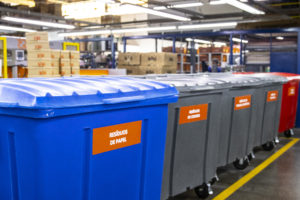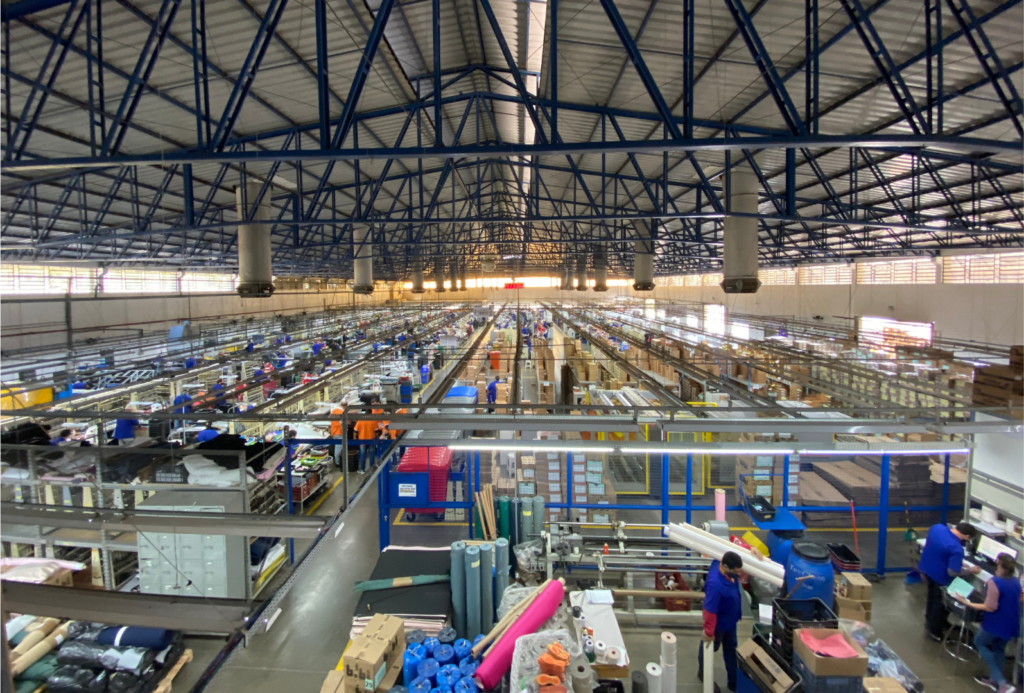São Paulo – Sustainability. A word that has gained strength on many fronts worldwide. And the Brazilian footwear sector is no different. The segment already has seven certified companies and another 40 in the process, part of the Sustainable Origin program of the Brazilian Association of Footwear Industries (Abicalçados).
The program was established in 2013 and underwent an overhaul in 2019. Today, it is the world’s only sustainability certification for the footwear industry based on international practices. “The goal of the program is to certify the highest number of Brazilian companies in the coming years,” said the project manager at Abicalçados, Cristian Schlindwein. The program follows five guidelines; economic, environmental, social, cultural, and sustainability management.
The performance of Calçados Bibi, one of the certified companies, is guided by the pillars of social, environmental, cultural, and economic sustainability, in addition to the principles of ESG (Environmental, Social, and Corporate Governance). The brand is focused on children’s footwear and exports to over 70 countries. Thinking about children’s health and well-being, Bibi has developed a production chain with suppliers that only provide non-toxic raw materials to manufacture shoes, following international standards.

The company also announced a series of commitments through 2030. “Sustainability has been in Bibi’s DNA since its inception. In the manufacturing plants, clean electrical power is used, coming from sustainable sources. In addition, industrial waste is recycled or co-processed instead of being sent to landfills,” commented Bibi’s Supplies and Sustainability manager, Ismael Fischer. The Abicalçados program recertified the brand with the Diamond seal.
For another Brazilian brand, Usaflex, sustainability is also part of its culture. In 2012, the company started allocating a share of its budget to the theme and created a committee of employees from different areas such as Social Assistance, Occupational Safety, Finance, Innovation, and Supply, responsible for preparing and implementing sustainability actions. In the same year, activities began to be reported in the Sustainability Report, which follows the guidelines established by the Global Reporting Initiative (GRI).
Upon joining the Sustainable Origin program of Abicalçados, Usaflex listed all its practices in a single program, using indicators based on international sustainability references and aligned with the United Nations (UN) Sustainable Development Goals (SDG) and the GRI itself.

Usaflex also received the Diamond seal in December 2021 and had its initiatives validated by external auditors. “As the only sustainability certification in the footwear production chain in the world, Sustainable Origin brings competitive advantages, especially for exports to more developed markets,” emphasized the brand’s CEO, Sergio Bocayuva.
According to the executive, sustainability management is a work in progress. “We believe this set of commitments, in line with the new sustainability policy, will be the foundation of a new business environment for Usaflex, adding human and corporate relations in favor of positive impacts in the economic, social, and environmental spheres,” Bocayuva added.
Usaflex’s ten goals
Usaflex produces five million pairs a year and exports 10% of its production. The brand operates in Arab markets such as Kuwait, Saudi Arabia, Oman, Bahrain, Libya, and the United Arab Emirates; these countries account for close to 15% of foreign sales. In addition, there are three Usaflex licensed stores in Saudi Arabia and Kuwait.
Recently, the brand launched ten sustainability goals. Among them are promoting the health, safety, well-being, and comfort of employees and communities in which Usaflex is present. The stimulus to the social and economic development of the regions where the brand is located is also mentioned. The objective is to redesign products and processes to minimize environmental impacts constantly.
Bibi’s plans
The annual output at Calçados Bibi’s manufacturing plants is 2.5 million pairs, 20% of which are exported. Bibi is currently present in some Gulf Cooperation Council (GCC) countries; Saudi Arabia, Bahrain, Oman, the UAE, and other Arab nations such as Lebanon, Morocco, Algeria, Egypt, and Libya.
With two industrial parks, one in Parobé, in the state of Rio Grande do Sul, and the other in Cruz das Almas, in Bahia, the brand develops projects aimed at the local communities in these regions.
It has also set commitments for 2030. Among them is improving the environmental management system. On the social side, the brand seeks to encourage constant professional qualification of young people from local communities through the “Bibi Talent Factory” program, hiring at least 30% of program participants in the company.
Sustainable Origin
Interested companies can certify brands individually, following the step-by-step process through the program’s official website. The certification is valid for two years, and the company must seek recertification after expiration.
* Special report by Lisiane Mossmann for ANBA
Translated by Elúsio Brasileiro




